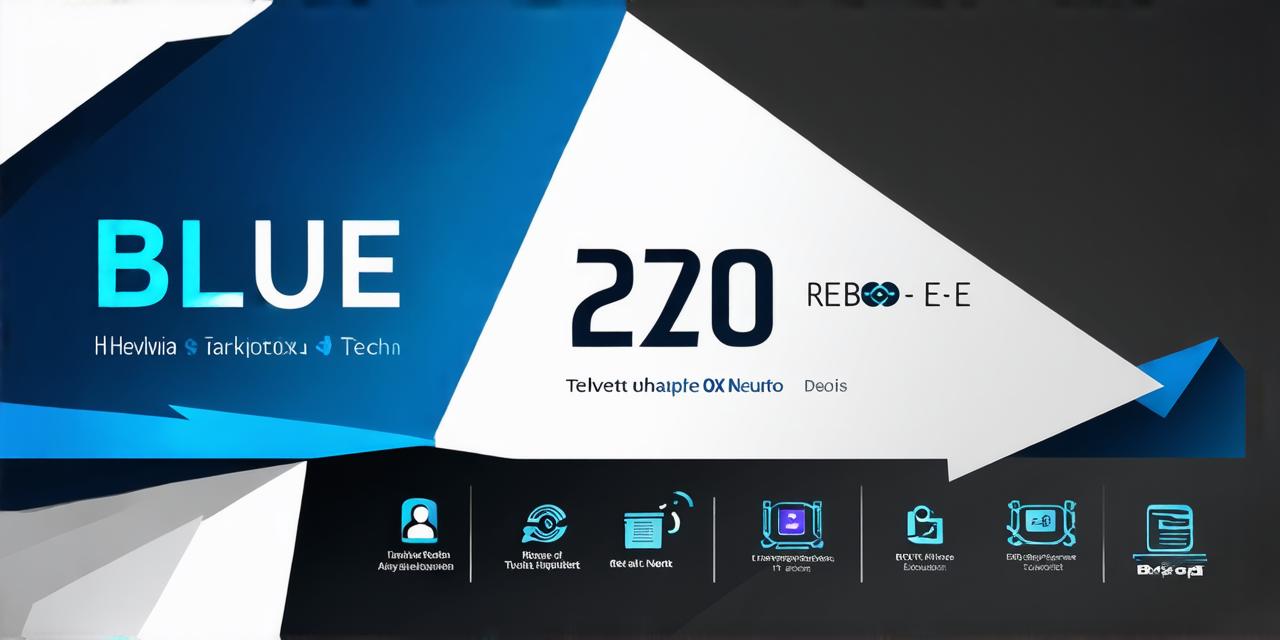Blockchain technology has revolutionized the way we store and transfer data across networks. One of the key components of blockchain systems is the node, which plays a crucial role in maintaining the integrity and security of the network.
Introduction: Understanding Blockchains
Before diving into the topic of node blockchains, it’s important to first understand what a blockchain is. A blockchain is a decentralized digital ledger that records transactions across multiple devices or nodes in a secure and transparent manner.
Each block in the chain contains a record of several transactions, and once a block is added to the chain, it cannot be altered or deleted. This makes the data stored on a blockchain immutable and tamper-proof.
One of the key features of blockchains is their decentralization, which means that there is no central authority controlling the network. Instead, the network is maintained by a distributed network of nodes, each of which has a copy of the ledger.
The Role of Nodes in Blockchain Networks
Now that we have a basic understanding of blockchains let’s explore what nodes are and their role in the network. A node is a device or computer that participates in the blockchain network by maintaining a copy of the ledger and verifying transactions.
Nodes can be categorized into two types: full nodes and lightweight nodes.
Full Nodes
Full nodes are responsible for validating transactions, creating new blocks, and maintaining a complete copy of the blockchain. They require a significant amount of computing power and storage space to do this, which makes them less common than lightweight nodes.
Lightweight Nodes
Lightweight nodes, on the other hand, only store a subset of the blockchain data and do not participate in validating transactions or creating new blocks.
Node Blockchains
A node blockchain is a type of blockchain where each node in the network maintains a copy of the ledger and participates in the verification of transactions. This means that there is no central authority controlling the blockchain, and instead, the network is maintained by a distributed network of nodes working together to validate transactions and create new blocks.
The Benefits of Node Blockchains
There are several benefits to using a node blockchain, including:
- Decentralization: As mentioned earlier, one of the key features of a node blockchain is its decentralization. This ensures that the data on the blockchain is secure and resistant to tampering or hacking, as there is no single point of failure.
- Scalability: Node blockchains can scale horizontally, which means that new nodes can be added to the network to increase its capacity. This makes node blockchains well-suited for applications that require high levels of throughput and low latency.
- Transparency: All transactions on a node blockchain are recorded on a public ledger, which ensures transparency and accountability. This can be particularly useful in industries such as finance and healthcare, where data privacy is paramount.
- Resilience: Node blockchains are highly resilient, as they rely on a distributed network of nodes to maintain the integrity of the network. If one node fails or goes offline, the others can continue to function normally, ensuring that the network remains available and reliable.
Case Studies: Real-Life Examples of Node Blockchain Implementations
There are several real-life examples of node blockchain implementations, including:
- Ethereum: Ethereum is a popular decentralized platform that allows developers to build and deploy smart contracts and decentralized applications (dApps) on the blockchain. Ethereum uses a node blockchain architecture, where each node in the network maintains a copy of the ledger and participates in the verification of transactions.
- IPFS: InterPlanetary File System (IPFS) is a peer-to-peer file system that allows users to store and share files across a distributed network of nodes. IPFS uses a node blockchain architecture, where each node in the network maintains a copy of the ledger and participates in the verification of transactions.
- Filecoin: Filecoin is a decentralized storage network that allows users to store and share files across a distributed network of nodes.

